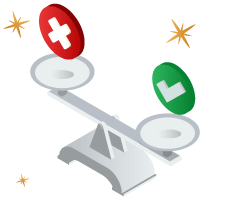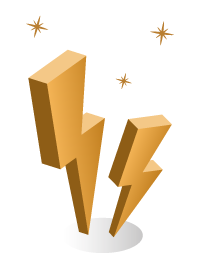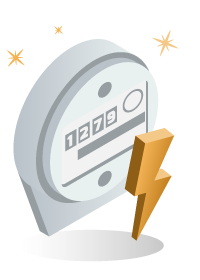Business Energy Meters in Ireland: Types, Installation, and Providers

In Ireland, many businesses are looking for ways to use energy wisely and cut down on costs. That's where "business energy meters" come in handy. These special devices help companies keep an eye on how much energy they're using. With these meters, businesses can manage their energy consumption more effectively.
In this article, we'll take a closer look at the different types of business energy meters available. We'll also explain how they're put in place and highlight the top smart meter providers in Ireland. So, let's dive in and explore how these meters can make a big difference for businesses!
What Is a Business Energy Meter?

A Business Energy Meter, also known as a commercial energy meter, is a specialized device used to measure and monitor the energy consumption of commercial and industrial establishments. It is designed to accurately record the amount of electricity, gas, or other energy sources used by businesses over a specific period.
Business energy meters play a vital role in providing accurate insights into energy consumption patterns for commercial enterprises. They go beyond traditional energy meters by offering real-time data on energy usage, allowing businesses to make informed decisions to optimize energy efficiency and control costs.
The primary purpose of a business energy meter is to provide businesses with precise data on their energy consumption patterns. This data is critical for several reasons:
Cost Management:
With accurate energy consumption data, businesses can identify peak usage periods and optimize their operations to reduce energy consumption during expensive tariff hours, ultimately leading to cost savings on energy bills.
Energy Efficiency
Business energy meters help companies identify energy-intensive processes or equipment, enabling them to implement energy-saving measures and improve overall energy efficiency.
Sustainability
As the world emphasizes sustainable practices, businesses can track their carbon footprint and take steps to reduce their environmental impact based on the energy consumption data provided by these meters.
Accurate Billing
In cases where businesses are billed based on their actual energy usage, business energy meters eliminate the need for estimated billing and ensure fair and precise billing.
You might like: All About ESB Smart Meters
What Are the Types of Business Energy Meters?

There are various types of business energy meters available to cater to different commercial needs. Each type offers distinct features and benefits, making it essential for businesses to choose the most suitable one. Some of the commonly used business energy meters include:
Single Rate Meter
For businesses, with working days Monday to Friday and operating hours are between 8 am and 10 pm.
Most businesses in Ireland use a type of energy meter called a "single-rate meter." This meter charges the same flat rate for energy usage, no matter the day or time.
These single-rate meters are often standard meters and can be identified on your energy bill. You will find a 21-digit supply number in a box marked ‘S’ and starts with '03'.
For larger businesses with higher energy needs, there's also a type of single-rate meter called "Maximum Demand 1-rate meter." It works similarly to the single-rate meter but can offer two different rates if required.
Two-Rate Meters
For businesses that use a lot of energy during the evenings and weekends, such as restaurants, shops and hairdressers.
If your business has a two-rate meter, it means you'll pay different prices for energy depending on when you use it. If you use energy during busy times, the rate will be higher. But if you use it during quieter times, the rate will be cheaper.
You can identify two rate meters on your energy bill after looking for the supply number in a box marked ‘S’ and starts with’04’.
You might consider having separate meters for evenings and weekends. During evenings, the rate will be lowered, and during daytime on weekends, it will be higher. The rates and times can vary based on your energy provider.
Example of two-rate meters are:
- Economy 7 meter: This comes with cheaper rates during a 7-hour window
- Economy 10 meter: This comes with cheaper rates during a 10-hour window
Three Rate Meters
For businesses that stay busy all day, particularly like pubs, bars, and nightclubs that operate until late at night.
A three-rate meter offers three different rates for energy usage based on different times during the day. It can also be referred to as an evening, weekend, and night meter. This includes:
- Day rate: Most expensive
- Combined evening and weekend rate: Lower cost
- Night rate: Cheapest
Three Phase Meters
For businesses that consume a large amount of energy, such as those using high-power machinery, and have a three-phase supply.
It is the type of equipment used by business that decides if you have one or three-phase energy supply. Companies with heavy machinery and equipment, using lots of power (around 1000 watts all the time when on), usually have a three-phase supply. This system cuts power loss, sends energy more effectively, and keeps staff safe with a constant electrical load.
Usually, three-phase meters don't send usage data to your energy provider automatically. So, you'll need to read the meter yourself from the screen display if there's one.
Half-Hourly Meters
For bigger businesses like large offices, factories, and warehouses that use 70kW/100kW or more electricity every 30 minutes, it's mandatory by law.
In a box labelled ‘S,' you'll find a 21-digit supply number, look for an energy bill starting with '00', and you have a half-hourly meter. This kind of meter records your energy usage every 30 minutes and sends the data automatically to your business energy provider. This helps you get accurate charges for your energy use.
- For larger businesses using 100kW or more electricity every half an hour, it's a legal rule to have a half-hourly (HH) energy meter.
- For business using 70kW or more per 30 minutes, it's optional and not a legal must.
AMR devices
An Automated Meter Reading (AMR) device can measure both your gas and electricity usage and send energy readings to your supplier every 30 minutes.
Larger businesses that don't need a half-hourly (HH) meter often use these devices. To get an AMR device for your company, you'll need to find an AMR provider and pay them for the service.
Smart Meters
By 2024, ESB Networks plans to upgrade all standard electricity meters in Ireland to the new Smart Meters, which means replacing 2.4 million meters across the country.
Smart meters are becoming increasingly popular for both business electricity and gas in Ireland, gradually replacing traditional energy meters. With a business smart meter, you don't have to worry about taking and submitting your own meter readings anymore. The smart meter automatically sends the readings directly to your energy supplier.
For gas, smart meters record your usage every 30 minutes, and for electricity, it's almost real-time. However, you have the flexibility to decide how often your data is sent to the supplier—whether it's every half an hour, once a day, or once a month.
The more frequently your readings are taken, the better your supplier can understand when and why you use energy. This means they can offer more accurate advice on improving your energy efficiency and possibly provide a more personalized deal when it's time to renew your contract. Smart meters give you better control over your energy usage, making it easier to save money and be more efficient.
Multi-Site Meters
For businesses using energy on more than one site.
If your business has multiple locations, a multi-site meter can be a great help. It allows you to keep track of your energy usage across all your premises. With a multi-site energy meter, you can monitor how much energy each site uses.
Dealing with multiple tariffs can be confusing, but with a multi-site meter, you can combine all your tariffs under one supplier. This makes it easier to manage your utility bills and can even lead to cost savings.

How to Arrange For Installing Business Energy Meter?
Installing business energy meters requires professional expertise to ensure accurate readings and seamless integration into the energy monitoring system. The installation process generally involves the following steps:
Assessment
A thorough assessment of the business's energy needs is conducted to determine the most suitable type of energy meter.
Choosing the Right Provider
Businesses need to select a reputable and experienced energy meter provider. Working with a reliable provider ensures a smooth installation process and access to valuable support and maintenance services.
Installation
Trained technicians will install the chosen energy meter at the business premises. The installation process December involve setting up data communication systems to transmit energy usage data to the provider and the business.
Testing and Calibration
After installation, the meter undergoes rigorous testing and calibration to ensure accurate readings.
Data Integration
Once the meter is installed and tested, it is integrated with the business's energy management system. This integration allows businesses to access real-time data and analytics for better decision-making.
Do I Need a New Energy Meter Installation When Relocating Business Premises?
When you move to a new place, there will be a meter already installed that your current or new supplier will use. You don't need to change it unless the meter is not suitable for your business. For instance, if you're a big business using 100kW every 30 minutes, you legally need a half-hourly meter. If the property doesn't have one, you can ask your business energy supplier to install it for you.
How Long Does It Take to Install a New Business Energy Meter?
Installing a new business energy meter usually takes around five days to two weeks. But if you need an extra meter, it might take up to 12 weeks because there could be more work needed at your place.So, it's a good idea to start planning for the new meter installation as early as you can. Talk to a business energy expert now to find the best deal for your business.
What does MPAN and MPRN mean?
Energy suppliers use two unique reference numbers: the Meter Point Administration Number (MPAN) and the Meter Point Reference Number (MPRN).
To find your MPRN:To locate your MPRN, check your business gas bill under the "Details of Charges" section. You'll see an 11-digit number displayed there.
To find your MPAN:To find your MPAN, refer to your most recent energy bill. The MPAN is also known as the "S Number" or "supply number." It's a 21-digit number that starts with the letter S. Check a previous electricity bill to locate it.
Who Are The Top Business Energy Meter Providers In Ireland?
Business Energy providers in Ireland offer a range of solutions to businesses looking to upgrade their energy monitoring capabilities. By the end of 2024, the whole of Ireland will have a smart meter. Here are some prominent smart meter providers:
- Electric Ireland
- Bord Gáis Energy
- Energia
- Community Power
- Flogas
- Pinergy
- Prepay Power
- SSE Airtricity Ireland
Find out more about our offers from energy, broadband and waste collection providers!
